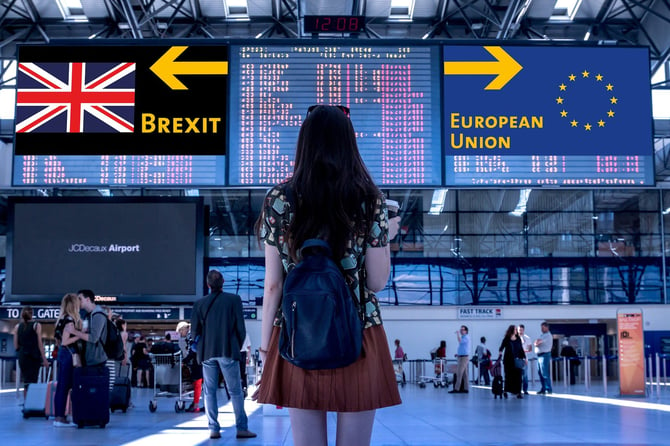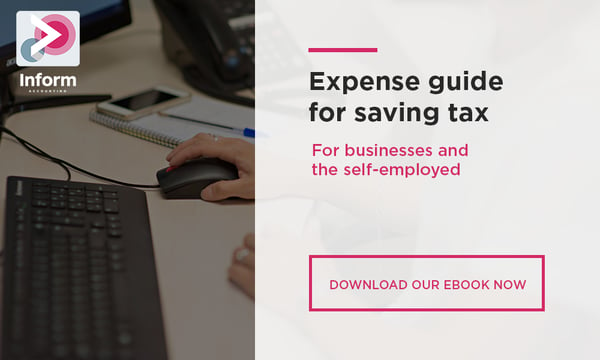BLOG
Are you ready for Brexit?

There are new rules for businesses and citizens from 1 January 2021. There is guidance and a helpful checklist available on the UK GOV website.
You need to act now if you are:
- doing business with EU companies
- importing goods into the UK
- exporting goods from the UK
- travelling to the EU
- employing EU citizens
Putting a plan in place now will help you to take the necessary steps and ensure your business is prepared for the changes to come.
So what sort of things should you be thinking about?
Legal and Compliance
Have you checked that any terms or conditions in your contracts with suppliers and customers will remain legal after 1 January 2021?
You are likely to be more affected by this if you are trading with suppliers and customers within the EU. You may need to seek additional legal advice to review these contracts for you.
Check your supply chain
Have you contacted other businesses in your supply to chain to make continuity arrangements during and after the transition period?
If you are importing or exporting goods in / out of the UK, it is likely that you will be heavily affected by this. Prices are expected to increase as a result of tariffs and importing and exporting costs e.g. customs duty. If this significantly increases the cost of purchase for customers, they may not want to continue trading with the UK, and you will need to have alternative supplier arrangements in place.
Opening lines of communication with other more local vendors now may also uncover better deals, lower prices, and even potentially give you some negotiating power.
Our advice is to keep talking with suppliers and customers, have alternative arrangements in place and reduce your exposure to risk early on.
UK Border
Have you checked with suppliers or notified customers about any expected delays? Do you have all the relevant trading and transport licenses in place? Do you have your EORI number?
It's expected that there will be delays in the transportation of goods during the transition period as new rules are implemented. Planning ahead for things like ordering in enough stock to avoid stock-outs, will be key to ensuring your business has the means and resources to continue trade with minimal interruption. This of course is likely to affect cash flows, so if you need cash flow support, please get in touch with us.
As the borders go up, you will need the correct licenses if you are travelling by road to ensure safe passage across the border.
You need an EORI number to move goods between the UK and non-EU countries. From 1 January 2021 you will need one to move goods between Great Britain (England, Scotland and Wales) and the EU. You may also need one if you move goods to or from Northern Ireland. If you do not have an EORI, you may have increased costs and delays. For example, if HMRC cannot clear your goods you may have to pay storage fees.
You’ll need a separate EORI number from an EU country if your business will be making declarations or getting a customs decision in the EU. Get this from the customs authority in the EU country where you submit your first declaration or request your first decision.
Find out more information about EORI numbers on the GOV website here.
Insurance
Have you reviewed your insurance policies to check if they remain valid after 1 January 2021?
You may need to renegotiate your existing insurance, or take out additional insurances to make sure you’re covered for the changes ahead.
Employees
Have you reviewed your existing employment contracts to check if they are valid or need renewing? If you have any employees working outside the UK, or non-British nationals working in the UK, do you have the correct paperwork in place?
The workforce is often the backbone of most organisations. You will need to make sure that all employee contracts remain valid post-Brexit, paying particular attention to the contracts of employees working outside of the UK.
Employees that are non-British nationals may require a visa to work in the UK after Brexit. You’ll need to make sure you have this paperwork in place to comply with UK legislation. They may also need to apply to the EU Settlement Scheme to continue living in the UK.
Communications - Phones and Roaming
Have you checked with your current provider whether your existing coverage and charges will continue?
It's likely that many phone companies will change their phone and data roaming coverage as increased restrictions are placed on data. We recommend talking to your provider to see how your business will be affected to avoid any unwanted large bills.
Accounting
We are keeping a watchful eye on the changes being announced and how they will affect businesses. We’ll update you as soon as we have more information.
VAT
Have you checked the VAT implications of Brexit? Will you need to change the rates of any of your products or services? Do you need to register in any other EU countries?
VAT is arguably one of the most complex areas of Brexit in accounting terms. With so many variations, and few details confirmed, it’s currently unclear what the final position will be.
We are working tirelessly with third party VAT experts to understand the implications of Brexit, and will look to provide clarity for clients as we understand more.
Find out more from your local Chamber of Commerce
We know that the government advice isn’t always the clearest (we only need to look at the recent handling of the local tier system to see that), so we’ve been on the search for some simple and easy to follow support for businesses.
The British Chamber of Commerce has a comprehensive Brexit hub, covering all aspects of business that will be affected by the transition.
You can also find out information from the Brexit page on your local Chamber of Commerce website to see what support is available in your area.
For those of you local to us, you can find more information on the Greater Birmingham Chamber of Commerce website here.
Support from Inform
All these changes are enough to make even the most business savvy person shudder. We understand that it's complex, and you may need additional support in areas of your business that you’ve not needed before.
At Inform, we have a strong financial team, able to offer advice from bookkeeping, through to complex tax issues. We also work with a number of external experts in their fields who provide our clients with valuable advice.
Our advisory services include business planning, cash flow forecasting and budgeting (to name a few), so if you feel in need of any of the above, please just give us a call on (0121) 667 3882 or email our Business Development Manager at charlie.sangha@informaccounting.co.uk to find out how we can help.
Additional resources:
Read more of Inform's tax blogs:
Live page: Accounting advice during business disruption
It's that wonderful time of the year...for fraudsters to pray on taxpayers!
Paying yourself a salary: What are the most tax efficient options for limited company owners?
Four key cashflow issues that could cripple your business (and how to avoid them)...




.jpg?width=1500&height=1000&name=amy-hirschi-K0c8ko3e6AA-unsplash-(5).jpg)

